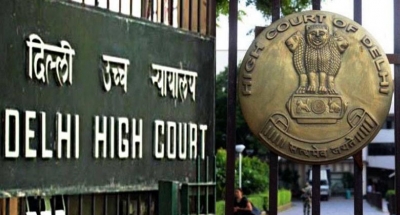
Cheating in exams like pandemic, can ruin society: Delhi HC
The Delhi High Court, while dismissing a petition filed by Delhi University student allegedly caught cheating during the examination, ...
by IANSThe Delhi High Court, while dismissing a petition filed by Delhi University student allegedly caught cheating during the examination, observed that "copying and cheating" in examinations is like a "pandemic which can ruin society and the educational system of any country".
"Copying and cheating in examinations is like the plague. It is a pandemic which can ruin society and the educational system of any country. If the same is left unchecked or if leniency is shown, the same can have a deleterious effect. For any country's progress, the integrity of the educational system has to be infallible," observed a single judge bench of Justice Pratibha M. Singh.
The observation came in while the court was hearing a petition filed by Aarzoo Aggarwal, a final year student of B.A. (H) Economics at DU's Daulat Ram College challenging the University's order cancelling her examinations for the entire semester.
"Whether it is paper setters maintaining utmost confidentiality, students not cheating, invigilators being vigilant, examiners doing their job with utmost alacrity knowing that the future of students is in their hands, Universities and colleges not tampering with results - the conduct of all stakeholders has to reflect commitment and also be unblemished," the court said.
After hearing the arguments of both the sides, the court observed that the petitioner's plea of natural justice i.e., that she was not heard in response to the show-cause notice, turned out to be a specious plea.
"The petitioner had written a reply to the show cause notice, but she concealed the said reply. The petitioner has also appeared before the EDC and signed the 'Undertaking For Good Conduct'. She has apologised after receiving counselling and the Committee has also considered her case sympathetically. The University could do no more. None of these facts were disclosed in the writ petition or during oral submissions. The case of the petitioner, as pleaded in the writ petition, is false to her knowledge and conceals more than it reveals," the court noted.
The court said that the documents produced by the University show that resorting to unfair means does not elude even meritorious students. "This case is an example of why the merit or otherwise of a student in the past is completely irrelevant while considering malpractices such as these," it said.
Expressing displeasure and anguish over the conduct of the petitioner, the court said that ideally, it could have proceeded with a stricter action against her. However, considering her age, and the fact that she is still a student, the court, even after taking note of her unethical conduct, it has decided not to take any further action against her.
Following the observations, the court dismissed the petition. "The present case is definitely one which does not call for interference especially in exercise of extraordinary constitutional remedies, in favour of the petitioner, who has resorted to unethical practices and has not been truthful to this court. Accordingly, while confirming the punishment meted out to the petitioner, the present writ petition is dismissed," it said.
"The result for the remaining three papers which has been submitted by the University to the Court Master, has been perused by the Court. However, this Court is of the opinion that no directions in respect of the same are called for. The University's decision to cancel the entire examination is upheld," it added.
anb/vd
( With inputs from IANS )